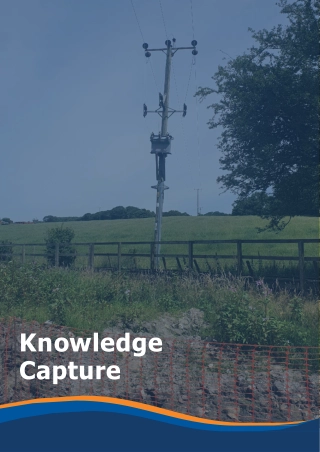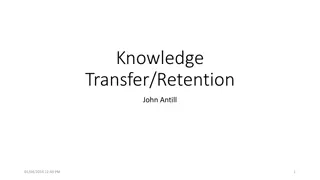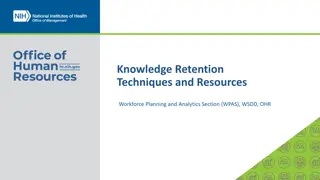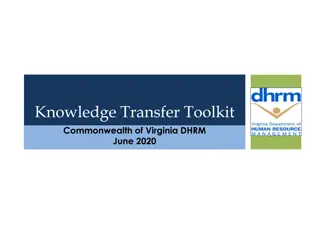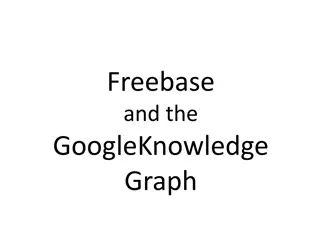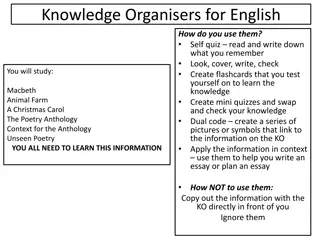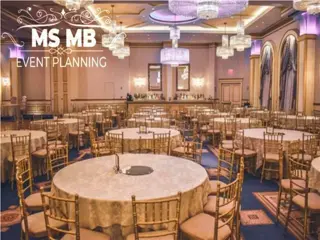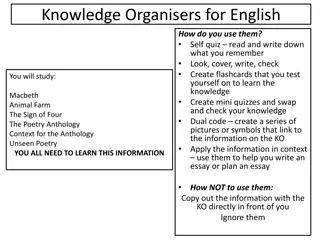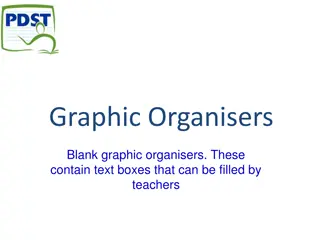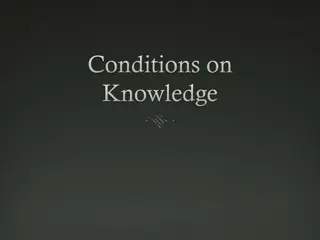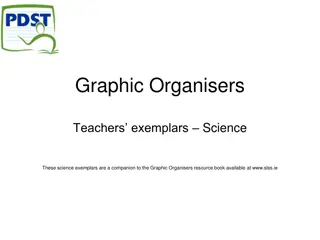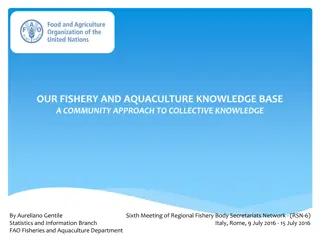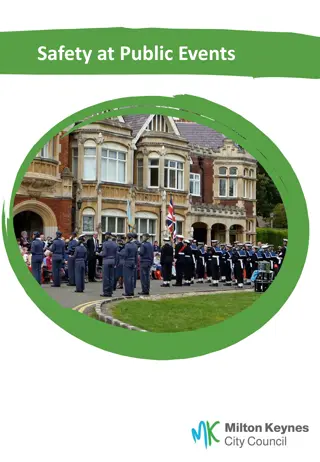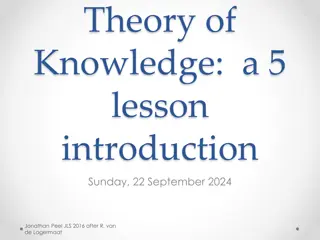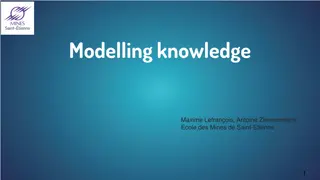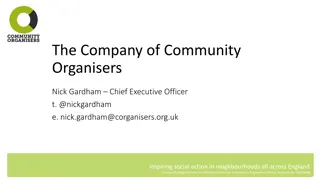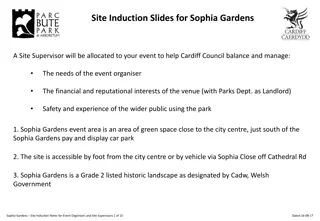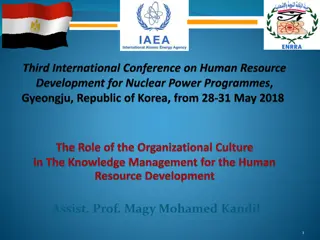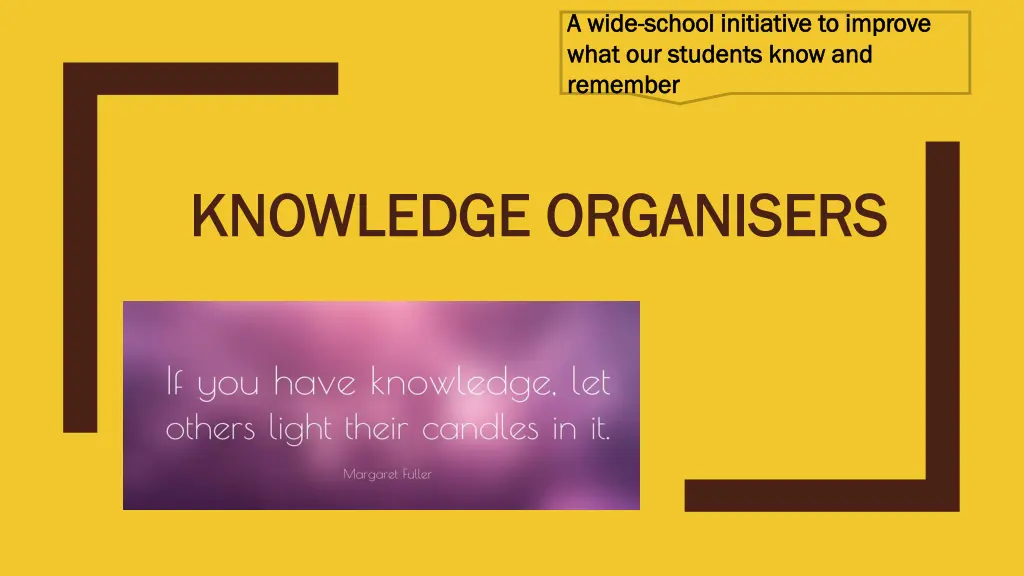
Effective Implementation of Knowledge Organisers for Student Learning
Discover the importance of Knowledge Organisers (KOs) in improving student knowledge retention. Learn how KOs provide foundational knowledge, aid in academic learning, and support student development. Explore how to create, use, and benefit from KOs effectively to enhance teaching and learning outcomes.
Download Presentation

Please find below an Image/Link to download the presentation.
The content on the website is provided AS IS for your information and personal use only. It may not be sold, licensed, or shared on other websites without obtaining consent from the author. If you encounter any issues during the download, it is possible that the publisher has removed the file from their server.
You are allowed to download the files provided on this website for personal or commercial use, subject to the condition that they are used lawfully. All files are the property of their respective owners.
The content on the website is provided AS IS for your information and personal use only. It may not be sold, licensed, or shared on other websites without obtaining consent from the author.
E N D
Presentation Transcript
A wide A wide- -school initiative to improve school initiative to improve what our students know and what our students know and remember remember KNOWLEDGE ORGANISERS KNOWLEDGE ORGANISERS
What is a Knowledge Organiser? What is a Knowledge Organiser? A knowledge organiser (KO) sets out the important, useful and powerful knowledge on a topic on a single page (Kirby, 2015). With the content demands of new courses, these are becoming increasingly necessary to distil the key information for students to commit to memory For these to become a useful classroom and study tool, we should consider the purpose purpose (what is the point of a knowledge organiser?), the content should be included and how should it be presented?) and the pedagogy can knowledge organisers become a practical tool used effectively by teachers and students?). content (what pedagogy (how
The research says. The research says .
What was our rationale? What was our rationale? Recognise the research and the science of learning around how students learn and take steps to support them further A tool to identify exactly what we want students to know by the end of our unit. Ensure consistency across all subject areas with a focus on high quality knowledge Improve retention of knowledge from year 7 onwards Promote the importance of revision through the KO with students from year 7 upwards
This is what your This is what your knowledge organiser knowledge organiser should be providing in should be providing in your subject for your your subject for your students students Foundational Knowledge Foundational Knowledge: the facts, theories, principles, methods, skills, terminology and modes of reasoning that are essential to more advanced or independent learning in an essential to more advanced or independent learning in an academic discipline. academic discipline. that are Providing students with a strong Providing students with a strong academic knowledge base is needed if academic knowledge base is needed if we are to get them to become the we are to get them to become the learners we want them to be learners we want them to be
Implementation of Knowledge Organisers Implementation of Knowledge Organisers Getting it right Getting it right ASFA students said ASFA students said It was an amazing idea It is a really great way to keep people learning at school, even at home! I love them! The knowledge organiser has helped me get better test scores Thank you very much for the knowledge organiser Good work :) Thank you for giving us the knowledge organiser
Research Base With careful design and use of knowledge organisers, we can With careful design and use of knowledge organisers, we can construct schemas, complex architectures of knowledge stored construct schemas, complex architectures of knowledge stored in long in long- -term memory, with a view to automating their use Mary term memory, with a view to automating their use Mary Myatt Myatt https://impact.chartered.college/article/organising-knowledge-purpose-pedagogy- knowledge-organisers/
Pedagogy: Knowledge Organisers The use of knowledge organisers needs to be integrated into teachers practice and students habits. This includes using the following strategies regularly and routinely. Regular retrieval practice is important, because active retrieval aids later retention (Roediger et al., 2011). This can take various forms, e.g. low-stakes quizzes during lessons, or writing down the dates for key events in a timeline from the KO. It could be free recall, where students write down everything that they can remember on the topic, before checking the KO, or perhaps filling in a blank (or partially blank) knowledge organiser. Testing will also identify gaps in knowledge, lead to more learning on the next study session and produce better organisation of knowledge (Roediger et al., 2011). We should ensure that the material included in knowledge organisers is elaborated upon, by relating it to additional knowledge associated with it, often in the form of why questions. There is an element of retrieval practice contained in this strategy, known as elaborative interrogation, but it works by ensuring that there is some sort of active understanding and meaningful consideration of what is being learnt (Willingham, 2014). Building complex schemas requires knowledge to be connected, so that this can be used when learning X by asking, How does concept X relate to concept Y? Finally, we should ask students to organise the knowledge into something different in order to help recall and further understanding. Reif (Reif, 2008) lists some forms of knowledge organisation: nearly random organisation; lists; network (associative network, concept map); hierarchy. The strategy of elaborative interrogation can be used to help build these particular organisational structures, but students should be asked regularly to organise the knowledge contained on the KO into different organisational structures. For example, a list of key historical figures from the Second World War could be organised hierarchically in terms of power/status, could be built into a concept map or could be re- ordered into another list. All of these strategies should be regularly used by teachers, but we must ensure that students are aware of how and when to use these strategies themselves, something that won t happen without explicit instruction (Zimmerman, 2010). When using knowledge organisers in class, teachers can articulate why the particular strategy being used is effective and model its use with the KO. For students to get the most out of this, we can encourage them to use the metacognitive regulation cycle: plan how to undertake the task; monitor the effectiveness of the strategy; evaluate the overall success (EEF, 2018). For example, students might wish to learn a series of events and dates, so they might plan to use flashcards in several ways. They know that retrieval practice is effective so they use them to self-quiz. They know that elaborative interrogation is important, so they consider why each event was important and how it contributed to ultimate outcomes. They understand that knowledge may stick better if organised in different ways, so they organise the dates chronologically. They monitor which dates are known, then retest those not yet learnt. They reflect, following this, on tricky dates and then place each in turn in the centre of a concept map and consider how each relates to the other dates. Knowledge organisers are not a silver bullet, but they can form a central part of any knowledge-based curriculum when used in this systematic, evidence-informed way.

